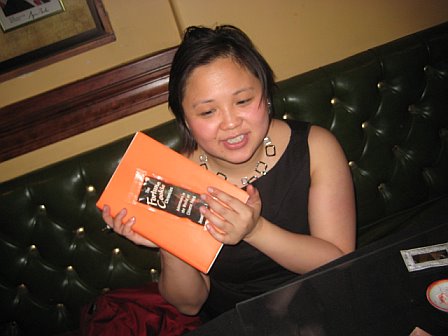Necessary cookies help make a website usable by enabling basic functions like page navigation and access to secure areas of the website. The website cannot function properly without these cookies.
We do not use cookies of this type.
Marketing cookies are used to track visitors across websites. The intention is to display ads that are relevant and engaging for the individual user and thereby more valuable for publishers and third party advertisers.
We do not use cookies of this type.
Analytics cookies help website owners to understand how visitors interact with websites by collecting and reporting information anonymously.
We do not use cookies of this type.
Preference cookies enable a website to remember information that changes the way the website behaves or looks, like your preferred language or the region that you are in.
We do not use cookies of this type.
Unclassified cookies are cookies that we are in the process of classifying, together with the providers of individual cookies.
We do not use cookies of this type.
 We had dinner last night at the venerable Denver Press Club with Jennifer 8.Lee and learned about Chinese food. The dinner was Chinese takeout, of course, from a DU-area eatery called "Hong Kong Cafe." It was pretty good. The dinner was organized by John Ensslin, president of the Colorado chapter of the Society of Professional Journalists.
The unfortunately small gathering was treated not only to good food and conversation, but a wonderful and entertaining presentation by Lee, a New York Times Metro reporter who has just published her first book, "The Fortune Cookie Chronicles," which is a peek at the cross-cultural pollination that Americans think of as Chinese food.
First of all, change your idea of Chinese food. What most people in this country consider Chinese food is really Chinese American food. To underscore the point that Chinese food is more American than apple pie (as Lee asks, how often do Americans eat apple pie, and how often do they eat Chinese food?), the presentation begins with a startling fact: There are more Chinese restaurants in this country than McDonalds, Burger King, Wendy's and Kentucky Fried Chicken combined.
We had dinner last night at the venerable Denver Press Club with Jennifer 8.Lee and learned about Chinese food. The dinner was Chinese takeout, of course, from a DU-area eatery called "Hong Kong Cafe." It was pretty good. The dinner was organized by John Ensslin, president of the Colorado chapter of the Society of Professional Journalists.
The unfortunately small gathering was treated not only to good food and conversation, but a wonderful and entertaining presentation by Lee, a New York Times Metro reporter who has just published her first book, "The Fortune Cookie Chronicles," which is a peek at the cross-cultural pollination that Americans think of as Chinese food.
First of all, change your idea of Chinese food. What most people in this country consider Chinese food is really Chinese American food. To underscore the point that Chinese food is more American than apple pie (as Lee asks, how often do Americans eat apple pie, and how often do they eat Chinese food?), the presentation begins with a startling fact: There are more Chinese restaurants in this country than McDonalds, Burger King, Wendy's and Kentucky Fried Chicken combined.





 I just had a great meal at our favorite restaurant in San Francisco's Japantown, Iroha. It's a noodle house that serves up a great deal: A lunch combination special of ramen topped with a couple slices of pork, and gyoza dumplings on the side.
The restaurant is more crowded than usual, and filled with lots of non-Japanese who are here for the first time. That's because J-Town in general is hopping this weekend. It's the second weekend of the annual Cherry Blossom Festival, or Sakura Matsuri. There are vendors with booths selling everything from junky trinkets to high-class jewelry, lots of food and stages of performers and martial arts demonstrations, all with a Japanese focus.
But there's also a Japanese American undercurrent, with young people flocking to stores that specialize in anime and Jpop music. It's a cool mix of traditional and contemporary -- much like J-Town itself.
I just had a great meal at our favorite restaurant in San Francisco's Japantown, Iroha. It's a noodle house that serves up a great deal: A lunch combination special of ramen topped with a couple slices of pork, and gyoza dumplings on the side.
The restaurant is more crowded than usual, and filled with lots of non-Japanese who are here for the first time. That's because J-Town in general is hopping this weekend. It's the second weekend of the annual Cherry Blossom Festival, or Sakura Matsuri. There are vendors with booths selling everything from junky trinkets to high-class jewelry, lots of food and stages of performers and martial arts demonstrations, all with a Japanese focus.
But there's also a Japanese American undercurrent, with young people flocking to stores that specialize in anime and Jpop music. It's a cool mix of traditional and contemporary -- much like J-Town itself.  Yesterday it was 82 degrees, close to a record high, in Denver. It was as if summer had arrived in one day, with students sunning themselves at the University of Colorado, and people everywhere doing what Coloradans do during the summer: biking, walking, throwing Frisbees.
Yesterday is like a dream. You wouldn't know it happened. Today it snowed, and tonight the lows will drop to 20. Here are some photos of the return of winter.
Yesterday it was 82 degrees, close to a record high, in Denver. It was as if summer had arrived in one day, with students sunning themselves at the University of Colorado, and people everywhere doing what Coloradans do during the summer: biking, walking, throwing Frisbees.
Yesterday is like a dream. You wouldn't know it happened. Today it snowed, and tonight the lows will drop to 20. Here are some photos of the return of winter. 